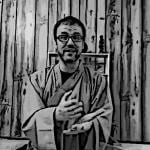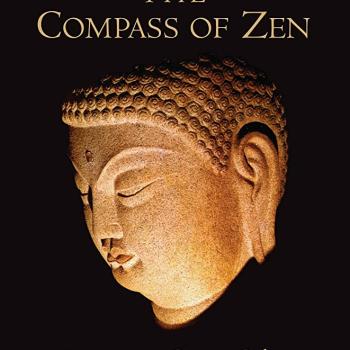“No Words Can Explain Enlightenment” – Niutou Farong
Niutou Farong lived in the 7th century in China. He was a student of the fourth patriarch, which makes him a dharma brother of Hongren, the teacher of Huineng. Farong’s lineage essentially died out. All of modern Zen comes from Huineng.
It’s said that he lived in a mountain forest and spent a lot of time hanging out with animals.
It’s said that over 300 followers would eventually show up to study with him.
His great work is called Xin Ming, or Song of Mind. It isn’t studied much but it’s a wonderful text. It’s all about how our minds are originally pure and how important practice is. It’s in a poetry style and probably inspired a whole lot of later works that are similar.
Niutou emphasized cultivating wakefulness and stillness together.
His lineage was called “The Oxhead School” and it died off before the rise of the Chan Schools that have survived into the modern era. There’s some speculation that “The Platform Sutra” was secretly originally a work of the Oxhead School and not the work of Huineng. I’ll leave that to historical scholars.
There is a lot in the Song of Mind that resembles Zen philosophy, but some that’s a little removed. It’s clear that Farong had other influences including other branches of Buddhism and also Daoism.
I’m writing all this to tell you that I’m going to explore “the Song of Mind” here with you. I’m going to do my own commentary of the verses of this text here in this column. I hope you like exploring it with me.
Here are some links if you want to read more:













